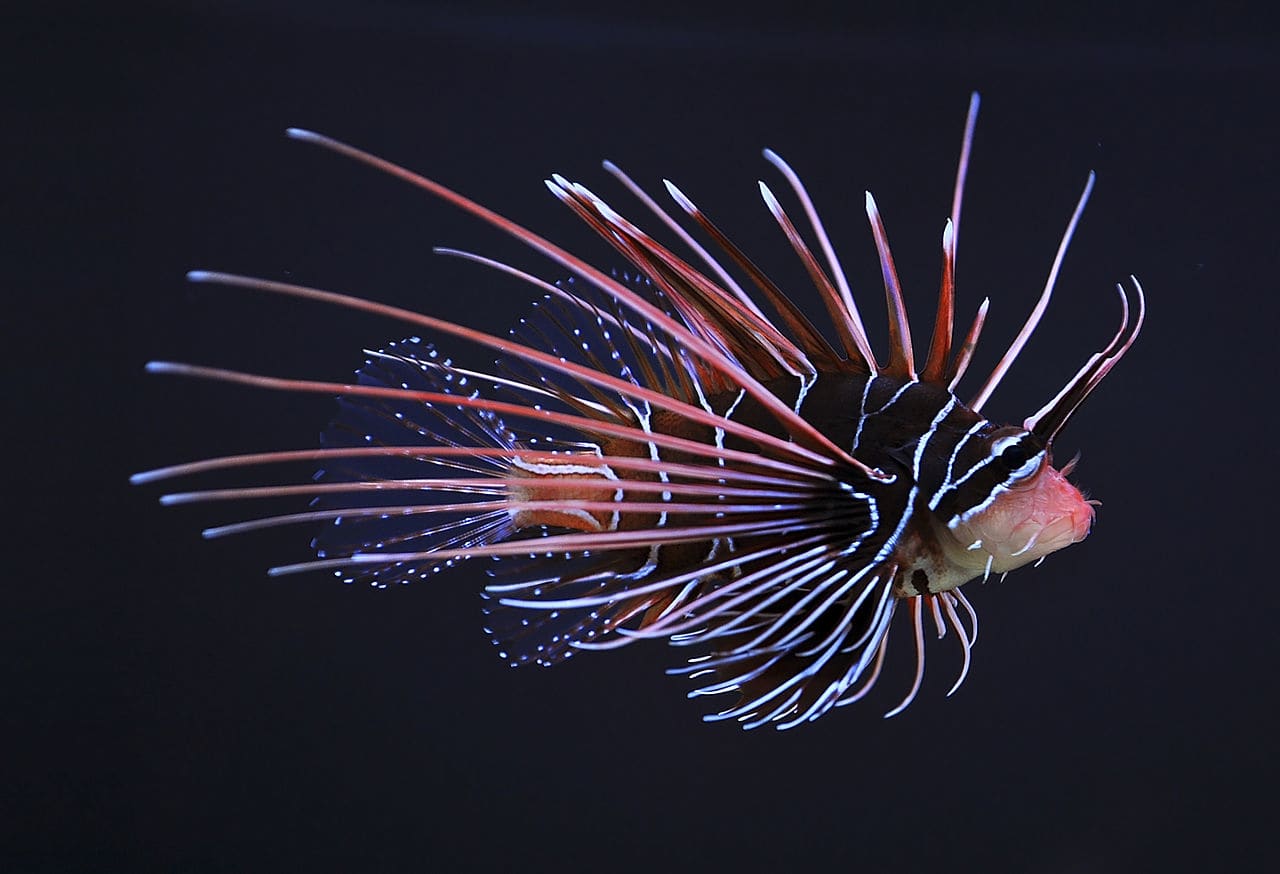Florida Teenager Discovers Lionfish Can Survive in Freshwater
OutdoorHub Reporters 07.15.14

Lauren Arrington, 13, is being credited for a breakthrough discovery after she found that lionfish can survive in low-salinity water and even pockets of freshwater while working on a science fair project. Arrington and her father, ecologist and fish expert Albrey Arrington, conducted a series of rough experiments last year that inspired a more comprehensive study by researchers at North Carolina State University and Florida International University. The results of that study were recently published in the journal Environmental Biology of Fishes.
“Sometimes it takes someone outside of science—or a student—to look at something in a different way,” Craig Layman, one of the authors of that study, told the Sun Sentinel.
Lauren Arrington’s original experiment sought to determine how low of a salinity level lionfish could stand. As a native Floridian who grew up fishing, swimming, and snorkeling, she witnessed the growth of the lionfish population in Florida waters firsthand. Lauren’s father encouraged her to work on a science project involving the fish, and the two captured specimens from the Indian River Lagoon for testing. One party of lionfish was kept in saltwater as a control group while another was kept in a separate tank where Arrington slowly introduced freshwater. Her father, who holds a degree in fish ecology, estimated that the lionfish would tolerate no less than a salinity of 13 parts per 1,000. For comparison, ocean water has a salinity of 35 parts per 1,000.
In the end, Arrington lowered the salinity to just below half of her father’s estimate.
“They were normal, perfectly normal, at six parts per thousand,” Lauren Arrington told WPBF.
Layman’s researchers went further and found that lionfish could survive a minimum salinity of five parts per 1,000. The fish used in the study could even tolerate pulses of freshwater. Experts say this adds a new, concerning wrinkle to the problem of lionfish management, as the species can access estuaries and even parts of rivers.
“So now, the invasive lionfish is another layer, another threat, on top of that stressed ecosystem,” said Albrey Arrington.
Lionfish are already considered a major ecological problem along the East Coast and in the Caribbean. With few natural predators in these areas, lionfish have been consuming native fish at an alarming rate. The colorful species is now a favorite target of spearfishermen, who are encouraged to harvest as many as possible.
As for the Arringtons, scientific breakthroughs do not necessarily mean first prize at sixth-grade science fairs. Lauren Arrington received third place in the zoology category when she submitted her project to the Palm Beach County Regional Science and Engineering Fair. Both Arringtons agreed that the project was still a great success, however, and Albrey is understandably proud of his daughter.
You can watch an interview with Lauren below.

